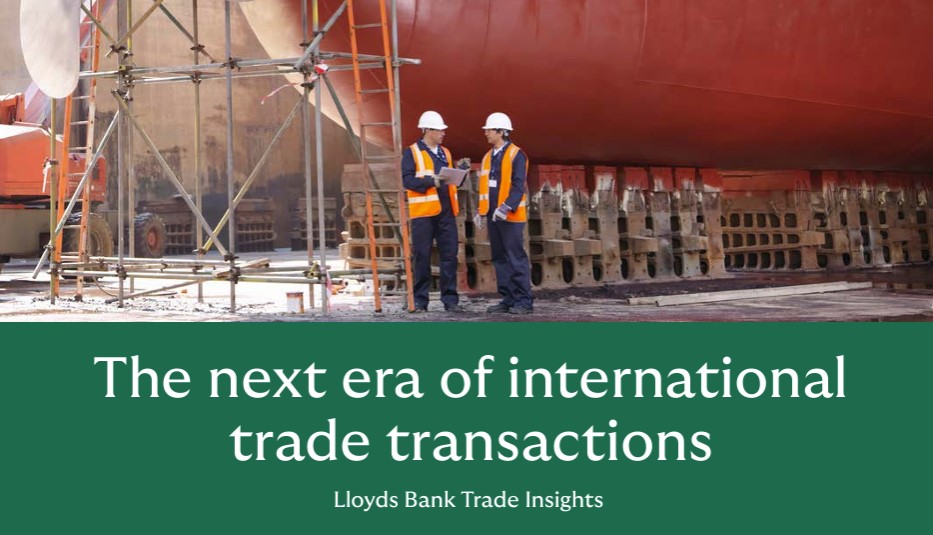
Until the recent drive towards digitalisation and modernisation, the processes involved in an international end-to-end transaction could be long, cumbersome and expensive. From the shipping of goods to the payment of an invoice, the overall transaction would take place through a collection of individual, fragmented and often siloed procedures, from the issuance of paper trade documents and the use of identity frameworks, Know Your Customer (KYC) and Anti-Money Laundering (AML) checks, through to payment and reconciliation. Often these processes would also include manual checks or interventions to resolve discrepancies or issues, which would cause friction and further delay.
In a standard transaction, the issuance and transmission of paper-based documents for the importing or exporting of goods – documents such as Bills of Exchange, Bills of Lading, or Promissory Notes – could take over a month1 given that the paperwork would need to be printed, completed, and flown around the world to the intended recipients. Prior to the digitalisation of trade coming into effect, it was estimated that 28.5 billion paper trade documents were printed and flown around the world every day.
After the invoice had been issued, an international payment could – in certain situations – take days to complete, adding a significant amount of time to the overall transaction. Compared to Real-Time and domestic payment journeys, the international equivalent is subject to more friction points as a result of the complexity of the international landscape.
Digitalisation is changing the game. The pace at which the digital ecosystem has developed has offered a wealth of opportunities to solve many of these issues – in some cases improving existing processes, and in other cases leveraging brand new technology. In any case, the goal is to build a cohesive, holistic and interconnected system that makes it easier than ever for businesses to trade internationally.
Lloyds Bank is at the forefront of an industry-wide drive to maximise the potential of new technology and modernised processes to unlock efficiency and supercharge global trade.
Source: Lloyds Bank
